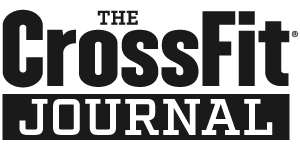Start here:
/The most common misconception with starting CrossFit is that you need to be fit in order to do so. There are so many people I have heard say that they are going to first get stronger, lose weight, or get in shape in order to start CrossFit.
That’s ridiculous!
You don’t need to physically prepare to start CrossFit. If you were sick, you would not say that you’re going to first get healthy and then go see your doctor. CrossFit is a fitness program that is scaleable to every ability level and is designed to get you stronger, help you lose weight and get you in shape, so why would you put off starting?
In most cases, be prepared for a 1 hour class that includes a warm-up, some skill development or practice, the workout of the day (WOD), and a cool-down. While the most experienced athletes will definitely be challenged during the class, each portion of the hour is adjustable so that each person is working within their own personal tolerances of intensity. This is why working under a coach’s guidance is so important. They are there to teach you, watch you closely and make any necessary adjustments in form or in the prescribed training.
So while you don’t need to prepare yourself in order to start CrossFit, it can be intimidating to go to your first class. These are some tips to help you feel more ready for CrossFit.
—Comfortable clothes and shoes - wear something that you can move in. Movements in CrossFit are full body and utilize multiple joints, so make sure that what you’re wearing is comfortable and not restrictive.
—Water - may be obvious to some, but bring a water bottle with you. You will have breaks throughout the class to get a drink and you’ll be glad to have it.
—Braces or supports - if you currently use any knee braces or other supports be sure to bring them along and show your coach at the start of class. Disclosing any injuries to your coach prior to starting is critical in protecting your from further injury. CrossFit is a great way for many individuals to regain functionality when it’s lost due to injury or inactivity. However in order to do so you must keep an open dialog with your coach about how your body feels before, during and after training.
—Positive Attitude - this one is by far the corniest, but most important without a doubt. In CrossFit you will be challenged every day. There is a huge learning curve with almost everything we do from the warm-up to the workout. If you can take your ego out of the equation and manage your expectations then you will be able to enjoy the journey much more. It is when we come in expecting to learn, understand, and then be able to apply what we’ve learned immediately that we set ourselves up for failure. Expect that you will struggle with some (or many) new skills, have patience with yourself, and trust your coach. You will get there.


